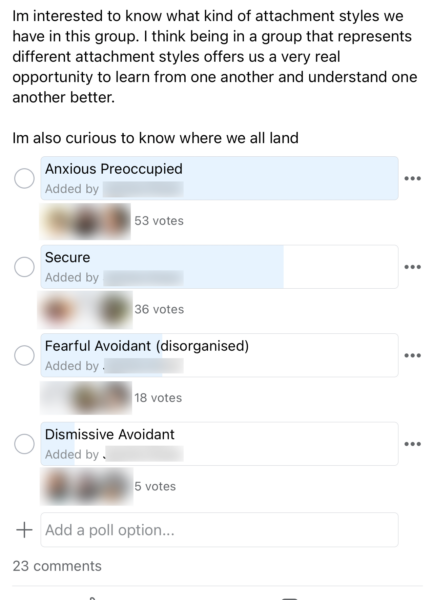This Is How To Handle Anxiety After A Breakup
Description
This is Tati Garcia,

She is a licensed professional counselor specializing in helping individuals with high functioning anxiety.
What’s high functioning anxiety?
Well, I had the pleasure of asking her myself:
One of the primary distinctions is that someone experiencing high-functioning anxiety may appear to be doing well externally. This could be someone who is successful, able to maintain a job, and can handle their day-to-day tasks efficiently. However, internally, they are grappling with anxiety. The symptoms can be consistent across different types of anxiety, such as overthinking, excessive worrying, and feeling constantly on edge or tense.
Honestly, Tati is a perfect guest to have onto our podcast because not only is our average client anxious,

But she gave some incredible advice on how to cope with the anxiety you may be feeling after a breakup.
Important Things Tati Talked About On This Episode
- What Is high functioning anxiety? 0:03
- How high-functioning anxiety is related to attachment styles. 5:34
- How to label your emotions? 11:42
- Redirection technique to help with anxiety. 15:31
- How does one manage to control anxiety? 25:04
- Has anxiety gotten worse with the advent of technology? 30:07
- How to deal with stress and anxiety. 36:58
Important Resources Tati Talked About
Interview Transcript
Chris Seiter 00:03
Today we’re gonna be talking to Tati Garcia, who is a licensed professional counselor and coach specializing in high functioning anxiety. She has 13 years of experience in mental health. And she runs the very popular YouTube channel slash podcasts calmly coping. So I just wanted to say thank you so much for coming on and doing this because we have a lot of anxious listeners, and I’m sure you can give them all kinds of tips.
Tati 00:27
Yeah, thank you so much for having me here. I’m excited to get into it.
Chris Seiter 00:31
All right. So high functioning anxiety, how is that different than just normal anxiety? What are like what, what’s the distinction between those two? Yeah, so
Tati 00:41
one of the main distinctions is somebody who is experiencing high functioning anxiety, if they appear to be doing well on the outside, so maybe somebody who is successful, who’s able to hold a job who is able to go about their day to day and often do it very well. However, on the inside, they’re really struggling with anxiety which you know, the symptoms can be similar regardless of what kind of anxiety is but it’s, you know, BB overthinking things worrying a lot, feeling on edge, and tense. Assuming the worst case scenario and situations, there can be a lot of physical symptoms that go along with that, like digestive issues, tension in your body headaches, shaking, and you know, it can, you know, the main difference is that with anxiety, just in general, it often tends to hold people back in avoidance. And so, you know, people, if there’s something in particular that you’re feeling anxious about, you might tend to avoid the thing and not want to do whatever it is that that thing is. So if it’s, you know, public speaking, you’re gonna want to avoid public speaking. But with high functioning anxiety, the fear and anxiety actually propels somebody forward into taking action, and into oftentimes overachieving or busyness and difficulty with relaxing. And so you know, somebody who has high functioning anxiety could potentially meet the criteria for a mental health disorder, but many times they because they are like, on the outside appear to be doing well. And other people may not recognize what they’re going through, it can be more difficult for them to seek out help, and they may not feel as understood.
Chris Seiter 02:40
So what’s really interesting as you were talking, so last night, I was doing, you know, the whole scrolling through Netflix looking for something. And I stopped on this documentary about this professional cyclist named Mark Cavendish. And he’s, like, known as maybe the greatest sprinter and like the Tour de France, like he would just went all the stages.
03:01
But he was doing really incredibly.
Chris Seiter 03:07
But then something, something happened, he got some sort of like endurance disease, I forgot the technical term for it. But he just continued, like, spiraled and pretty much exactly what you were talking about what the high functioning anxiety was, like him to a tee, to the point where he was avoiding getting any kind of help, he would just sort of double down and try to, over achieve to to accomplish those goals. So I’m kind of curious, like, this high functioning anxiety that you’re talking about. It’s not like someone just like wakes up and you know, maybe you’re like an anxious person to begin with. But is there like a slow progression toward the high functioning anxiety? Or is it just like, like a switch, like a light bulb? Going off?
Tati 03:52
Yeah, that’s a good question. I mean, that’s something that’s hard to say I what I’ve noticed in the clients and students that I’ve worked with is that there tends to be similar characteristics and personality traits that those with high functioning anxiety have, like, you know, being somebody who is hard working and somebody who is reliable and persistent. And so the kind of those traits that will result in like continuing to take action and keep going. However, you know, they’re like, any other personality trait or like any other mental health disorder, like it falls on a spectrum. And so, you know, there can be differing degrees to which people experiencing it, experience it and there can also be different contributing factors. So it could be you know, the way that somebody was raised, and you know, they were maybe in school did really well and we’re a perfectionist and focused on getting the best grades and then you know, kind of continued with that approach into adulthood. You know, it could be something that is gradual. I don’t know if there’s necessarily like, kind of a flip switching overnight. And oftentimes, it is the thing where many people don’t really recognize that they’re struggling with it, because they just feel like, well, this is just the way that I am. Because this is how they’ve lived their life for, you know, whatever period of time.
Chris Seiter 05:34
So, in our coaching practice, we study a lot of attachment styles, you know, we look at the kind of behaviors that people’s exes are exhibiting and the kinds of behaviors that our clients are exhibiting. And what’s really interesting is something that you said about the high functioning anxiety is they tend to avoid confrontation or things that I think will trigger their anxiety. But I’m curious, does that have anything to do with you know, like, typically, with the insecure attachment styles you have, like the dismissive avoidant, and the priyad, anxious, preoccupied, you know, the fearful avoidant and everything? Do you? Do you like tend to find that people with high functioning anxiety or avoidance or preoccupied, like, have you done any research on that? Or is that just there’s not enough?
Tati 06:24
That I’m not aware of? And I and I think that as far as I know, now, I’m no expert on like attachment styles or anything. But the way that people behave in relationships is oftentimes, like there can be parallels, of course, but you know, I think that it’s it’s not necessarily correlated with the types of personal or individual mental health stroke struggles somebody have has, of course, I think there can be contributing factors and reasons as to why somebody behaves a certain way in a relationship, but I think it’s it’s really rooted in like, you know, attachment theory says, In those early relationships, yeah, that somebody has with a parent or caregiver or, you know, other adults in their life. That’s going to result in, you know, the way that they are experiencing other relationships into adulthood.
Chris Seiter 07:39
Yeah, I mean, that that seems to track were one of the things we notice is that a lot of the exes that we study tend to have very avoidant approaches to the breakup. Whereas a lot of our clients tend to be on the other end of the spectrum where they are just trying to problem solve. A lot of times you have to get them out of the mindset of, hey, I want my ex back and start like saying, like, hey, stop being so codependent, let’s work on you being sort of independent. So I’m curious, someone who has high functioning anxiety? What are some of the tips or coping mechanisms that you often work with? Like if someone were if I were to sign up? If I have high functioning anxiety? Let’s say I do I have high functioning anxiety Totti? Fix me what what are the top tips that you would give me?
Tati 08:31
Yeah, so first, it’s addressing like the underlying root cau




